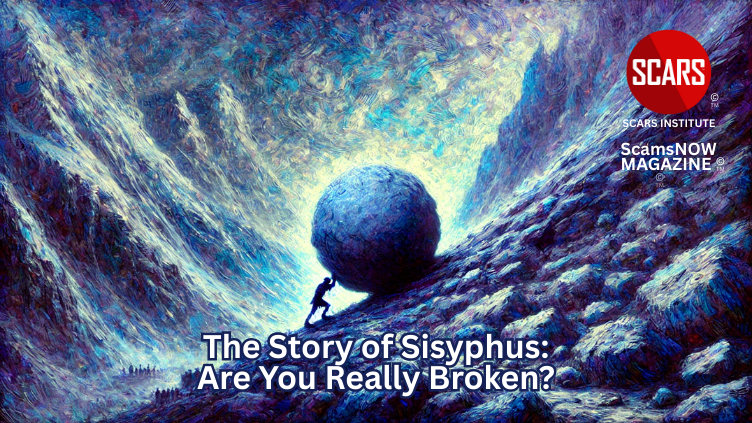INTERPOL Operation Red Card Arrests Hundreds in Africa
More than 300 arrests as African Countries Clamp Down on Cyber Threats
Primary Category: Crimes & Criminals
Intended Audience: General Public / Others
Authors:
• SCARS Editorial Team – Society of Citizens Against Relationship Scams Inc.
• Portions from INTERPOL
About This Article
INTERPOL’s Operation Red Card, conducted between November 2024 and February 2025, led to 306 arrests across seven African countries as authorities cracked down on cyber-enabled scams involving banking, investment, and messaging apps. With over 5,000 victims identified, the coordinated effort targeted cross-border criminal networks causing widespread financial and emotional harm.
Notable actions included Nigeria’s arrest of 130 individuals, including 113 foreign nationals tied to scam centers potentially linked to human trafficking, and South Africa’s dismantling of a large SIM box fraud operation. Zambia uncovered a malware-based phone hacking syndicate, while Rwandan authorities disrupted social engineering scams that defrauded victims of over $305,000 in 2024.
In total, law enforcement seized nearly 2,000 devices, recovered substantial assets, and leveraged global intelligence partnerships to trace and intercept these networks. INTERPOL emphasized the importance of international cooperation in fighting borderless cybercrime.

INTERPOL: More than 300 arrests as African Countries Clamp Down on Cyber Threats
The INTERPOL-Led Operation Targeted Banking, Investment and Messaging App Scams
Authorities in seven African countries have arrested 306 suspects and seized 1,842 devices in an international operation targeting cyber attacks and cyber-enabled scams.
The arrests were made as part of Operation Red Card (November 2024 – February 2025) which aims to disrupt and dismantle cross-border criminal networks which cause significant harm to individuals and businesses. In particular, the operation targeted mobile banking, investment and messaging app scams. The cases uncovered during the operation involved more than 5,000 victims.
As part of the crackdown, Nigerian police arrested 130 people, including 113 foreign nationals, for their alleged involvement in cyber-enabled scams such as online casino and investment fraud. The suspects, who converted proceeds to digital assets to conceal their tracks, were recruited from different countries to run the illegal schemes in as many languages as possible. Nigerian authorities have established that some of the people working in the scam centres may also be victims of human trafficking, forced or coerced into criminal activities. Overall, the investigation led to the seizure of 26 vehicles, 16 houses, 39 plots of land and 685 devices.
In a significant case from South Africa, authorities arrested 40 individuals and seized more than 1,000 SIM cards, along with 53 desktops and towers linked to a sophisticated SIM box fraud scheme. This setup, which reroutes international calls as local ones, is commonly used by criminals to carry out large-scale SMS phishing attacks.
In Zambia, officers apprehended 14 suspected members of a criminal syndicate that hacked into victims’ phones. The scam involved sending a message containing a malicious link which, when clicked, installed malware to the device. This allowed hackers to take control of the messaging account, and ultimately the phone, giving them access to banking apps. The hackers were also able to use the victim’s messaging apps to share the malicious link within conversations and groups, enabling the scam to spread.
During the operation, Rwandan authorities arrested 45 members of a criminal network for their involvement in social engineering scams that defrauded victims of over USD 305,000 in 2024 alone. Their tactics included posing as telecommunications employees and claiming fake ‘jackpot’ wins to extract sensitive information and gain access to victims’ mobile banking accounts. Another method involved impersonating an injured family member to ask relatives for financial assistance towards hospital bills. Overall, USD 103,043 was recovered and 292 devices were seized.
Neal Jetton, INTERPOL’s Director of the Cybercrime Directorate, said:
“The success of Operation Red Card demonstrates the power of international cooperation in combating cybercrime, which knows no borders and can have devastating effects on individuals and communities. The recovery of significant assets and devices, as well as the arrest of key suspects, sends a strong message to cybercriminals that their activities will not go unpunished.”
Ahead of the operation, countries exchanged criminal intelligence on key targets. This intelligence was enriched by INTERPOL with insights into criminal modus operandi using data from its private sector partners—Group-IB, Kaspersky and Trend Micro.
The seven participating countries were Benin, Côte d’Ivoire, Nigeria, Rwanda, South Africa, Togo and Zambia.
The operation was delivered through INTERPOL’s African Joint Operation against Cybercrime (AFJOC), an initiative funded by the UK’s Foreign, Commonwealth & Development Office.
-/ 30 /-
What do you think about this?
Please share your thoughts in a comment below!
Statement About Victim Blaming
SCARS Institute articles examine different aspects of the scam victim experience, as well as those who may have been secondary victims. This work focuses on understanding victimization through the science of victimology, including common psychological and behavioral responses. The purpose is to help victims and survivors understand why these crimes occurred, reduce shame and self-blame, strengthen recovery programs and victim opportunities, and lower the risk of future victimization.
At times, these discussions may sound uncomfortable, overwhelming, or may be mistaken for blame. They are not. Scam victims are never blamed. Our goal is to explain the mechanisms of deception and the human responses that scammers exploit, and the processes that occur after the scam ends, so victims can better understand what happened to them and why it felt convincing at the time, and what the path looks like going forward.
Articles that address the psychology, neurology, physiology, and other characteristics of scams and the victim experience recognize that all people share cognitive and emotional traits that can be manipulated under the right conditions. These characteristics are not flaws. They are normal human functions that criminals deliberately exploit. Victims typically have little awareness of these mechanisms while a scam is unfolding and a very limited ability to control them. Awareness often comes only after the harm has occurred.
By explaining these processes, these articles help victims make sense of their experiences, understand common post-scam reactions, and identify ways to protect themselves moving forward. This knowledge supports recovery by replacing confusion and self-blame with clarity, context, and self-compassion.
Additional educational material on these topics is available at ScamPsychology.org – ScamsNOW.com and other SCARS Institute websites.
-/ 30 /-
What do you think about this?
Please share your thoughts in a comment below!
TABLE OF CONTENTS
CATEGORIES
![NavyLogo@4x-81[1] INTERPOL Operation Red Card Arrests Hundreds in Africa - 2025](https://scamsnow.com/wp-content/uploads/2025/04/NavyLogo@4x-811.png)
ARTICLE META
Important Information for New Scam Victims
- Please visit www.ScamVictimsSupport.org – a SCARS Website for New Scam Victims & Sextortion Victims.
- SCARS Institute now offers its free, safe, and private Scam Survivor’s Support Community at www.SCARScommunity.org – this is not on a social media platform, it is our own safe & secure platform created by the SCARS Institute especially for scam victims & survivors.
- SCARS Institute now offers a free recovery learning program at www.SCARSeducation.org.
- Please visit www.ScamPsychology.org – to more fully understand the psychological concepts involved in scams and scam victim recovery.
If you are looking for local trauma counselors, please visit counseling.AgainstScams.org
If you need to speak with someone now, you can dial 988 or find phone numbers for crisis hotlines all around the world here: www.opencounseling.com/suicide-hotlines
Statement About Victim Blaming
Some of our articles discuss various aspects of victims. This is both about better understanding victims (the science of victimology) and their behaviors and psychology. This helps us to educate victims/survivors about why these crimes happened and not to blame themselves, better develop recovery programs, and help victims avoid scams in the future. At times, this may sound like blaming the victim, but it does not blame scam victims; we are simply explaining the hows and whys of the experience victims have.
These articles, about the Psychology of Scams or Victim Psychology – meaning that all humans have psychological or cognitive characteristics in common that can either be exploited or work against us – help us all to understand the unique challenges victims face before, during, and after scams, fraud, or cybercrimes. These sometimes talk about some of the vulnerabilities the scammers exploit. Victims rarely have control of them or are even aware of them, until something like a scam happens, and then they can learn how their mind works and how to overcome these mechanisms.
Articles like these help victims and others understand these processes and how to help prevent them from being exploited again or to help them recover more easily by understanding their post-scam behaviors. Learn more about the Psychology of Scams at www.ScamPsychology.org
SCARS INSTITUTE RESOURCES:
If You Have Been Victimized By A Scam Or Cybercrime
♦ If you are a victim of scams, go to www.ScamVictimsSupport.org for real knowledge and help
♦ SCARS Institute now offers its free, safe, and private Scam Survivor’s Support Community at www.SCARScommunity.org/register – this is not on a social media platform, it is our own safe & secure platform created by the SCARS Institute especially for scam victims & survivors.
♦ Enroll in SCARS Scam Survivor’s School now at www.SCARSeducation.org
♦ To report criminals, visit https://reporting.AgainstScams.org – we will NEVER give your data to money recovery companies like some do!
♦ Follow us and find our podcasts, webinars, and helpful videos on YouTube: https://www.youtube.com/@RomancescamsNowcom
♦ Learn about the Psychology of Scams at www.ScamPsychology.org
♦ Dig deeper into the reality of scams, fraud, and cybercrime at www.ScamsNOW.com and www.RomanceScamsNOW.com
♦ Scam Survivor’s Stories: www.ScamSurvivorStories.org
♦ For Scam Victim Advocates visit www.ScamVictimsAdvocates.org
♦ See more scammer photos on www.ScammerPhotos.com
You can also find the SCARS Institute’s knowledge and information on Facebook, Instagram, X, LinkedIn, and TruthSocial
Psychology Disclaimer:
All articles about psychology and the human brain on this website are for information & education only
The information provided in this and other SCARS articles are intended for educational and self-help purposes only and should not be construed as a substitute for professional therapy or counseling.
Note about Mindfulness: Mindfulness practices have the potential to create psychological distress for some individuals. Please consult a mental health professional or experienced meditation instructor for guidance should you encounter difficulties.
While any self-help techniques outlined herein may be beneficial for scam victims seeking to recover from their experience and move towards recovery, it is important to consult with a qualified mental health professional before initiating any course of action. Each individual’s experience and needs are unique, and what works for one person may not be suitable for another.
Additionally, any approach may not be appropriate for individuals with certain pre-existing mental health conditions or trauma histories. It is advisable to seek guidance from a licensed therapist or counselor who can provide personalized support, guidance, and treatment tailored to your specific needs.
If you are experiencing significant distress or emotional difficulties related to a scam or other traumatic event, please consult your doctor or mental health provider for appropriate care and support.
Also read our SCARS Institute Statement about Professional Care for Scam Victims – click here
If you are in crisis, feeling desperate, or in despair, please call 988 or your local crisis hotline – international numbers here.
More ScamsNOW.com Articles
A Question of Trust
At the SCARS Institute, we invite you to do your own research on the topics we speak about and publish. Our team investigates the subject being discussed, especially when it comes to understanding the scam victims-survivors’ experience. You can do Google searches, but in many cases, you will have to wade through scientific papers and studies. However, remember that biases and perspectives matter and influence the outcome. Regardless, we encourage you to explore these topics as thoroughly as you can for your own awareness.































![scars-institute[1] INTERPOL Operation Red Card Arrests Hundreds in Africa - 2025](https://scamsnow.com/wp-content/uploads/2025/04/scars-institute1.png)

![niprc1.png1_-150×1501-1[1] INTERPOL Operation Red Card Arrests Hundreds in Africa - 2025](https://scamsnow.com/wp-content/uploads/2025/04/niprc1.png1_-150x1501-11.webp)